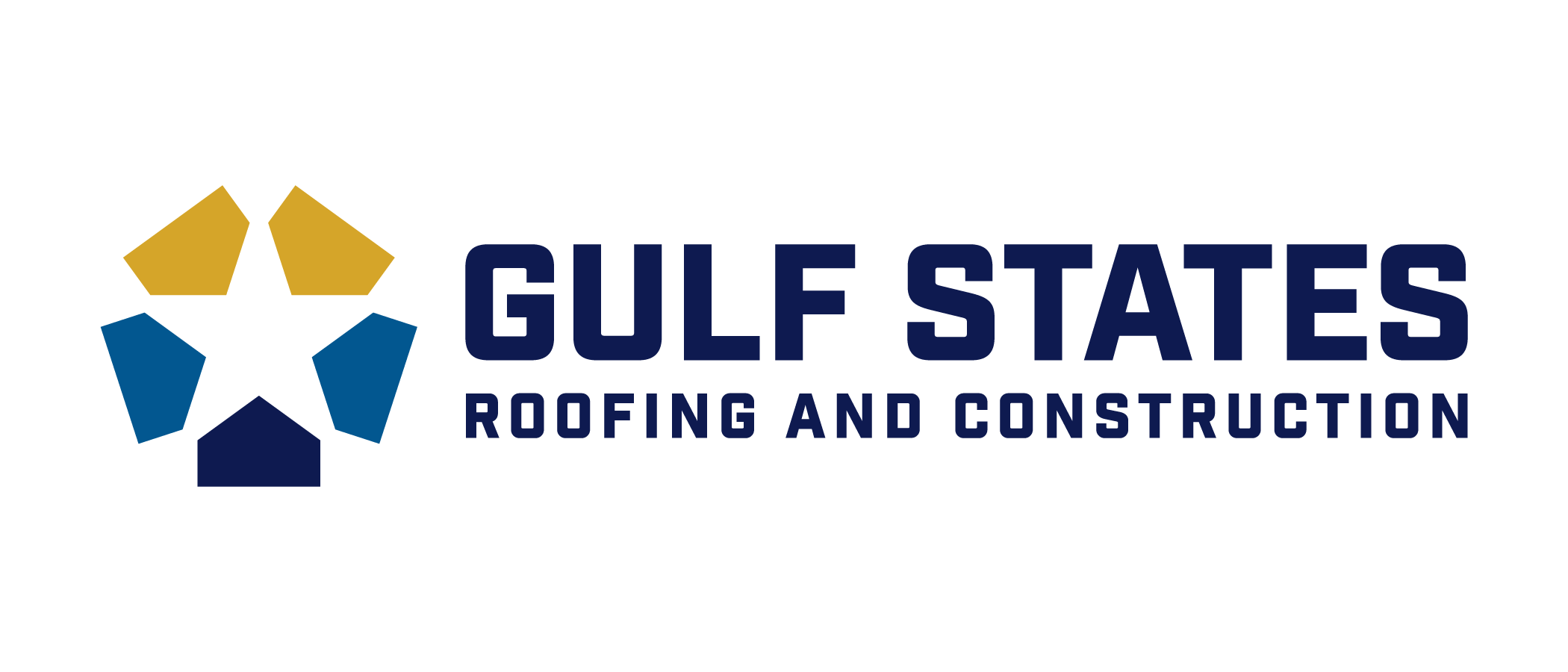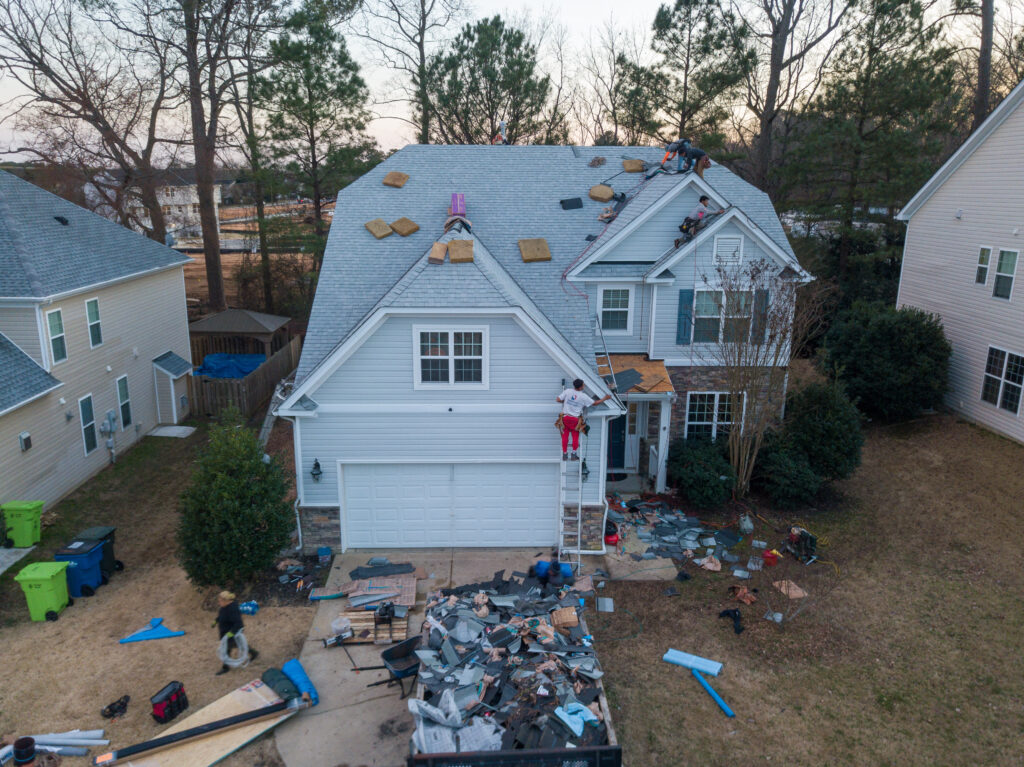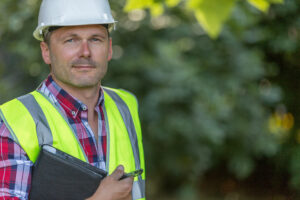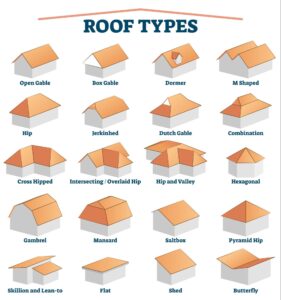Your roof, while often out of sight and out of mind, plays a critical role in safeguarding your family, belongings, and overall well-being. And when issues arise due to roof storm damage, broken shingles, or persistent leaks, you face a choice—tackle the repairs yourself or seek the expertise of a professional.
In this article, we examine the pros and cons of DIY roof repair vs. hiring a professional by delving into time, cost, and safety implications that you should consider when determining the best path for your restoration work. With the insights gained from this examination, you can make informed decisions that will help ensure your roof remains resilient and secure. We have also included a section on what to look for when vetting roofing professionals if you decide that hiring a professional contractor is the best approach for your project.
What Are the Time and Cost Implications of DIY Roof Repair vs. Hiring a Professional?
When it comes to repairing your roof, one of the primary considerations is cost, and there are different implications associated with both the do-it-yourself (DIY) and professional approaches.
DIY roof repair holds an immediate appeal for many homeowners due to its potential for substantial cost savings on labor. By taking on the work themselves, homeowners can gain several advantages, like:
- Eliminate the need to pay professional labor fees, which often constitute a significant portion of the overall project cost.
- Enable greater flexibility in budget management. Homeowners can choose materials and tools that align with their financial constraints.
- Feel a sense of accomplishment and pride in your work. For some homeowners, the investment of time and effort is rewarding in itself, making the financial savings even more appealing.
However, it’s important to acknowledge the challenges and potential drawbacks of the DIY approach. While it may save on labor, homeowners choosing a DIY approach to roof repair face several potential drawbacks, including:
- Budgeting for specialized materials and tools can accumulate into a substantial expense.
- DIY roof repair frequently comes with a steep learning curve. Mistakes can be costly, potentially leading to extensive damage. In some cases, botched repairs may necessitate professional intervention and significantly increase overall costs.
- For homeowners who lack training and experience in roof repair, a DIY project can be prohibitively time-consuming. Extended project durations can be inconvenient, and weather-dependent repairs might expose your home to further damage if unanticipated complications arise.
Advantages of Working With a Professional
Working with a professional roofing contractor can bring distinct advantages in terms of time and cost. Roofing professionals offer several benefits for homeowners in need of roof repairs, such as:
- Industry connections enable roofing professionals to access materials at more affordable rates. Their expertise in sourcing quality materials at a lower cost can offset their labor charges.
- Professional roofers often provide warranties for their work and possess insurance coverage. This means that any issues that surface after the repair won’t burden homeowners with additional financial expenses.
- Beyond cost-efficiency in materials, professional roofers are known for their efficiency and experience. By efficiently completing repairs or replacements, they can minimize the duration your home is exposed to potential damage from leaks or other roofing issues.
- Roofing contractors can help you navigate the insurance claims process.
DIY Roofing Safety Precautions
If you’re considering taking the DIY route and letting YouTube guide you through the roof repair process, be sure to approach your roof repairs with a safety-first mindset. Roofing work is inherently dangerous, and even professionals with years of experience, risk mitigation training, and appropriate safety equipment are routinely injured on the job. Here are four common DIY roofing safety hazards to keep in mind if you are planning to climb the ladder and begin the work yourself.
3 Common DIY Roofing Safety Hazards
- Falls from Heights: Roof work often involves climbing ladders and working at significant heights. Falls are one of the most significant safety hazards. Improper ladder placement, lack of fall protection equipment, or working near roof edges without safeguards can lead to severe injuries or fatalities.
- Weather Conditions: Roof repairs can be affected by weather conditions such as rain, snow, ice, or high winds. Slippery surfaces due to rain or frost can increase the risk of falls, while strong winds can make it challenging to maintain balance and control over tools and materials.
- Inadequate Roof Inspection: Failing to perform a thorough roof inspection before starting repairs can lead to hazards like unstable surfaces, hidden structural damage, or brittle roofing materials. Walking on weak or deteriorating sections can result in accidents.
- Electrical Hazards: Roofing often involves working around or near electrical components such as overhead power lines, attic wiring, or roof-mounted equipment. Failing to identify and safely navigate these hazards can result in electrical shock or fires.
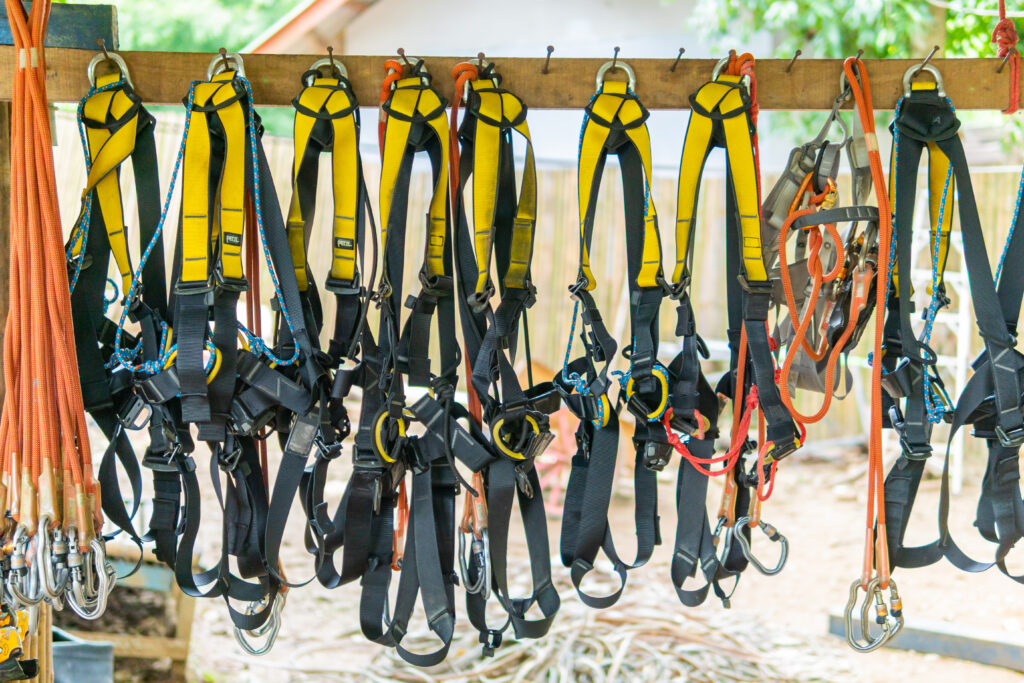
When engaging in DIY roof repair, safety should be a top priority. Before climbing the ladder, be sure you have the appropriate safety gear, including fall protection equipment like harnesses and anchors—and always work with a buddy when possible. If you are unsure about safety procedures or the extent of the repair work needed, consider consulting a professional roofer to assess the situation.
When Hiring a Roofing Professional Is the Best Decision
When determining if you want to take on the expense, time commitment, and risk associated with DIY roof repairs, you may decide that going with a professional is the smart choice. If you’re leaning toward hiring a professional roofing contractor, make sure you work with a contractor you can trust. In addition to a strong track record of successful restorations and satisfied customers, your chosen roofing contractor should hold valid and up-to-date licenses and insurance so that you are protected from liability during the project. When discussing your project with potential contractors, ask about their warranty policy for both materials and workmanship. A robust warranty can provide considerable peace of mind. And because you will work closely with your roofing contractor throughout the restoration process, ensure they value transparency and clear communications when discussing project schedule, challenges, costs, and scope.
Choose a Top-Notch Contractor, Choose Gulf States Contractor Services
Gulf States Roofing and Construction brings over 50 years of roofing repair and restoration experience to our customers. Contact our response team today with your questions on when DIY roof repairs are a good idea and when to bring in a professional.
